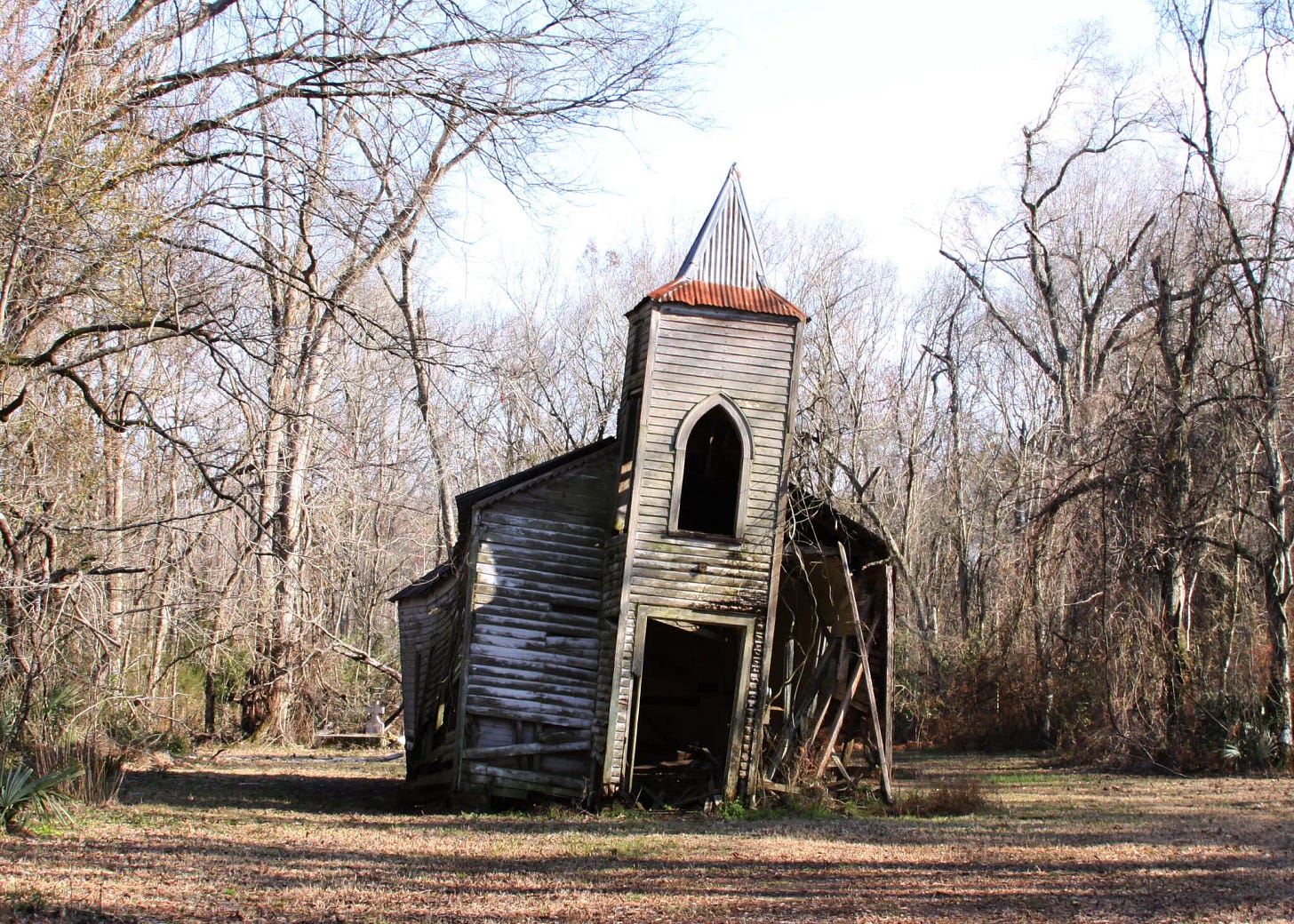When Faith Divides Us
The sanctuary of church is could unite us through grace, not divide us through the politics of modern guilt.
Sunday Sermon...
Every sermon I hear these days feels like a modern-day confessional booth for sins I didn’t commit, part of a broader guilt trip that has lost the plot. And honestly, what happened to the simple stuff? I seem to remember Sunday school as being about stories of the earth as a garden—a place we’re privileged to tend. Back then, virtue was its own reward, and the basic rule was: treat others the way you’d want to be treated. No one had to wrap it up in layers of sociopolitical theory. It was just basic decency, universal stuff. And I think there’s a lifetime’s worth of conversation to be had about that, mixed with maybe a little good humor, a bit of community spirit, and the idea that we should all hold each other to a higher standard of politeness and care. There’s beauty in that simplicity.
Am I the only one who misses it? Are there still people out there searching for a community-based Sabbath meeting that’s this straightforward? Or has the whole world gone anti-God, anti-theist, and decided we need to politicize every square inch of our lives, including Sunday mornings?
Our relentless push for inclusivity and diversity, though well-intentioned, has unintentionally drawn deeper lines between us, dividing us like seldom before in history, by making what separates us more important than what unites us.
In a time when much of public life is consumed by the politics of identity, race, and history, there’s an increasing disconnect between those who want church—perhaps their last bastion of tranquility and simplicity—to remain focused on universal human virtues and community spirit, and those who seek to remake it in the image of modern political movements.
Because it doesn’t feel like people are actually anti-religion. No one is railing against Christian values. Not really. If you look at the statistics, sure, formal religious attendance is down. But the hunger for connection and community, for meaning, for something bigger than the endless stream of noise we call life today—that’s still there. David Brooks pointed this out in The New York Times: discontent with religious institutions is sky-high, but personal spirituality? It’s more appealing than ever. People are yearning for something, and they’re just not finding it in the same places they used to.
This longing isn’t anti-anything; it’s a pursuit of balance, where the sacred can sit alongside the everyday, where people can gather not to be reminded of their inherent guilt or division, but of their shared humanity and responsibility to care for one another. Many people, it seems, are tired of the moralism tied to modern political movements, especially in spaces that were once sources of personal spiritual renewal. The question is, how can we get it back?
I guess it starts with talking about it. That always seems to be the hard part these days. Identity politics is a formidable argument. It's rhetorical ramparts are deeply defended and almost unassailable. It leaves very little room for discussion, disagreement, or even doubt. It's hard to remember that it's just a framing tool. One of a million possible ways to look at the world. So talking openly is the hardest part.
The modern manifestation of "hyper-woke religion"—which can overemphasize guilt, shame, and the flaws of particular groups—feels alienating, especially when contrasted with the simplicity and universality of teachings like the Golden Rule, which transcends race, nationality, and era. My frustration with the hyper-focus on identity politics at church mirrors a broader discontent. For me, church, and the sabbath, are meant to be a respite, a place of reflection on enduring values: kindness, service, humility, and stewardship of the earth—not an endless sermon on the sins of ancestors or the perpetual guilt of being born into a certain background.
Maybe that’s what I’m feeling every time I walk out of a church service, disappointed. I don’t want to go there and be reminded of my supposed ancestral guilt or get lectured about the sins of an entire group of people. I get that all day from the CBC et al. I want to talk about virtue. I want to talk about kindness and humility. I want to talk about the Golden Rule, about tending the earth, about laughing together and lifting each other up. Church could be about shared values. It could be a place where you didn’t have to agree on every headline, but you could agree on how we should treat one another.





